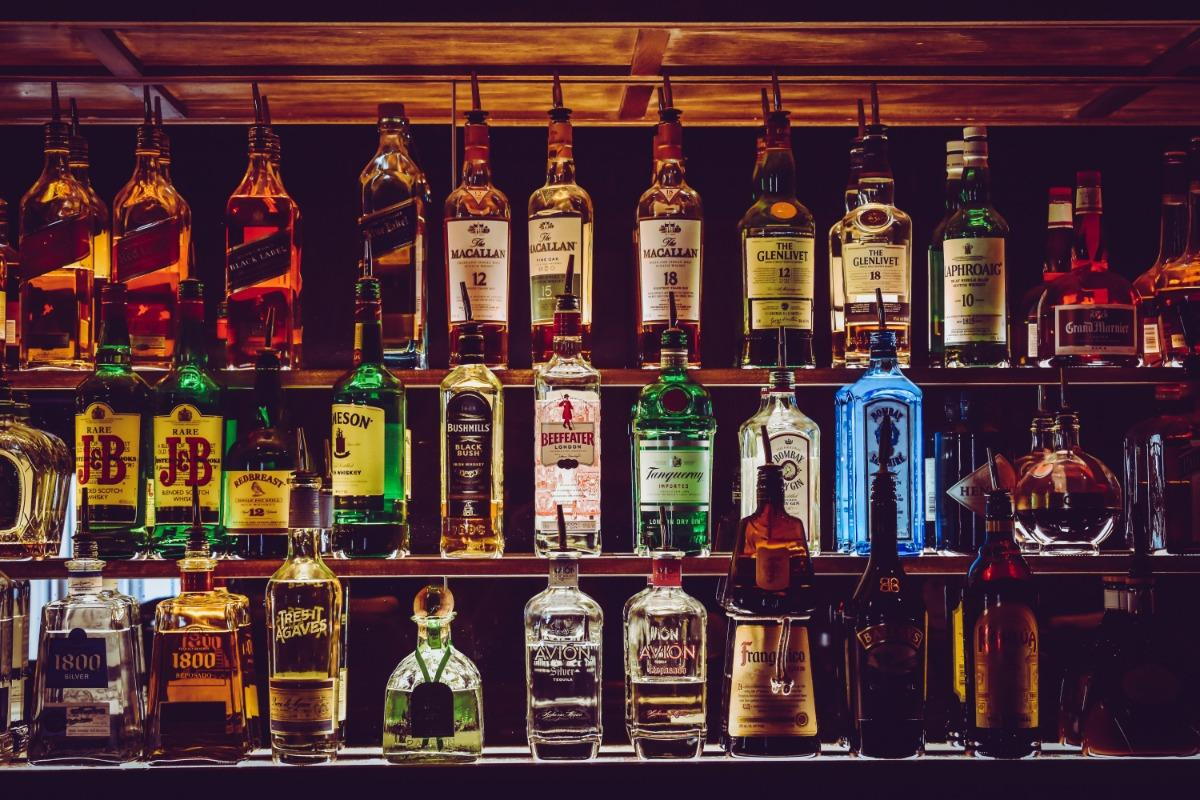
In any given year, about 19% of the American population qualifies for an anxiety disorder diagnosis; approximately 20% of those people also have a co-morbid alcohol or other substance use disorder, which is a fancy way of saying, that oftentimes, folks with anxiety self medicate with alcohol and/or other substances. Since anxiety is my specialty area, I see many clients in my office who present with varying levels of substance abuse/misuse, at different stages of change , with regards to desire and motivation to abstain or cut down. Since nothing quite gets at our collective desire to change than the thought of a fresh new year, it's no wonder that Dry January has captured this particular zeitgeist, and turned into a movement aimed at encouraging participants to abstain from alcohol use for the month of January. This year I decided to join the ever growing ranks, and I even roped my husband into participating alongside me. Be sure to come back every week in January for regular updates!
Week One - Fun With Cognitive Distortions
I don't qualify for a diagnosis of alcohol abuse or dependence, and in general, I don't think much about my relationship with alcohol. Abstaining made me examine some of the cognitive distortions that came up for me, which I'm guessing will resonate with some of you!
- The waitstaff are going to judge me: Well this was a surprising one! After our first week of Dry January, my husband and I decided to go out to dinner. On the way there, I found myself wondering what the waitstaff would think of me if I didn't order a cocktail or a glass of wine. Would they think I was cheap? Unsophisticated? I recognized an urge to order a more expensive entree in an attempt to communicate to our waiter, "look, just because I'm not drinking alcohol, I'm still cool, I'm still a good tipper, don't discount me!" You may recognize this common cognitive distortion as mindreading - jumping to the conclusion that someone is thinking negatively about you without any evidence. It's much more likely our server was concerned with all the tables he was juggling and getting everyone's orders correct, rather than what one, single customer was drinking (or not).
- My friends are not going to want to spend time with me: "Hit me up in February," or, at least, that's what I imagined friends saying when I told them I was spending a month booze free. Another example of mindreading. So far none of my friends have asked to postpone plans until I'm imbibing again, and, if anything, they've been curious and supportive. If you do have friends who only want to be around you when you're drinking, that might be a sign that it's time to widen your social circle.
- I should offer a compelling reason: "Oh, none for me, I'm on antibiotics." "No thanks, I'm the designated driver tonight." "I'm good, just watching my weight." This quote is attributed to so many different people I don't know what the proper attribution is, but it's one of my favorites; "No is a complete sentence." You don't actually need to offer an explanation as to why you're not drinking alcohol, a simple, "no thank you," should suffice, if you're feeling particularly polite.
- People are going to think I'm an alcoholic: As much as we like to tout the words 'stigma free,' we do not yet live in a stigma free world. I found myself concerned about being labeled if I refused a beer. I have to admit, I even felt some discomfort writing this blog post. Then I thought about it; so the worst thing that could happen is that someone would think that I have an illness which I'm treating? When you put it in those terms, it doesn't seem quite so scary.
- People are going to think I'm pregnant: Obviously this one does not apply universally, but I can't count the number of social situations I've been in where all a woman has to do is forgo a Chardonnay, and the next thing you know the table is planning her baby shower. Honestly, I'm not sure how to address this one. Is it celebrity culture, from Kim Kardashian to Meghan Markle that's caused an international obsession with baby bumps and other people's fertility? Just know that you're not alone. Again, if the worst thing that will happen is that you receive a pair of teeny booties in the mail, it's a small price to pay for the health benefits of cutting back.
Are any of you out there participating in Dry January? How's it going so far? Any surprising thoughts or cognitive distortions come up for you? Comment below!
Click here for part two in my month long series!
If you or someone you love is struggling with alcohol and/or substance abuse, there is help out there. Check out this link to find out information about treatment programs and providers in your area. Click here if you require urgent or crisis resources. Help is available 24/7 by calling the National Lifeline at 1-800-273-8255.
Dr. Scrivani specializes in the Cognitive Behavioral treatment of anxiety and related disorders, behavioral parent training, and provides tele-mental health services to residents of New York, Florida, and internationally. Call (888) 535-5671 or email [email protected] to set up a free consultation. Visit my website for more information.